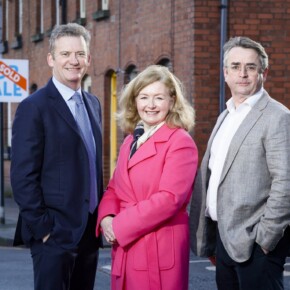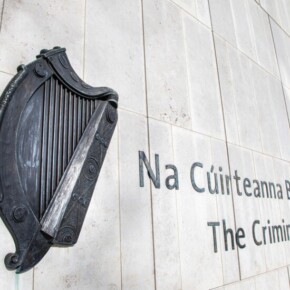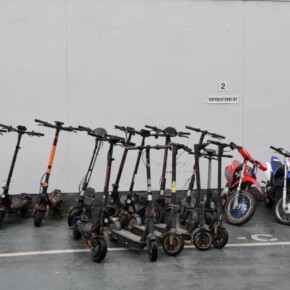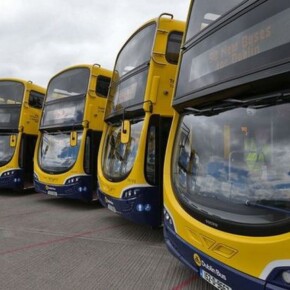Donohoe faces off against Trump
Mike Finnerty 09 Apr 2025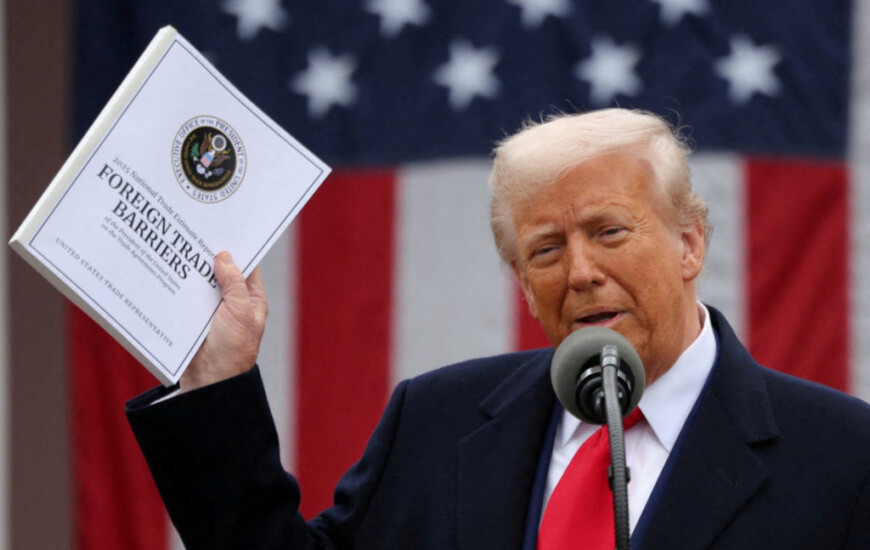
Donald Trump’s “Liberation Day” came to pass on April 2, and Ireland’s response to the issue will come from Dublin 7.
January’s news that Fine Gael TD Paschal Donohoe would be returned to his previous role of Minister for Finance, a role he previously held between 2017 and 2022, was widely seen as an anticipatory move by the government that they were looking to appoint someone to the role with experience of handling a major economic crisis.
Donohoe’s previous experience of managing Ireland’s finances through the Covid-19 pandemic and the fallout of Brexit will be called upon in what might prove to be his toughest challenge yet.
In a speech on April 3rd, Donohoe called Trump’s tariffs, which set European Union rates at 20%, “a deeply regrettable announcement.”
“Tariffs are economically destructive; they drive up the cost of doing business and put upward pressure on prices for consumers, all the while creating uncertainty for investment and future growth. What is worse, they hurt all sides in the process,” he said.
He said that free trade “has been at the centre of the Irish and European economies for many decades,” but stated “it is clear that the global economic landscape is changing”
“The ‘new normal’ will most likely be very different from what we have been used to for many years.”
The Dublin Central TD was speaking at the 10-year anniversary event for the Strategic Investment Fund, a measure which falls under the NTMA and looks to protect Ireland against economic impacts.
“Ultimately, the best way to minimise impacts on the worst-impacted sectors will be to focus on remaining a competitive economy in which to do business,” he said.
Economic impacts don’t come much bigger than what was announced on “Liberation Day.”
All exports from the European Union to the United States will now face a 20% tax, UK exports will be hit with a 10% rate, China on a 34% rate, India on 26%, and Japan on 24%.
Exporting to the US is worth 12% of the EU’s overall exports, and Ibec has warned that the tariffs could lead to a 2% to 3% drop in Ireland’s overall exports.
Ibec noted that Ireland is the European Union member state that is most exposed and vulnerable to trade shocks coming from the United States.
Donohoe said there is still “considerable uncertainty” and that the situation is fluid.
“We need to understand to what degree these measures will be permanent, and what the EU and global response will be, in order to fully assess the potential impacts.”
Donohoe regained the Minister for Finance brief following November’s general election, with Fianna Fáil holding the brief since December 2022.
Donohoe directly assumed the brief from fellow Northsider Jack Chambers, who will also play a part in Ireland’s response to the trade war in his role as Minister for Public Expenditure.
Chambers drew parallels between Trump’s actions and those taken by American president Herbert Hoover at the start of the Great Depression in the 1930s.
He said that consumer confidence is likely to be seriously impacted by the opening salvos of the trade war.
The Dublin West TD said the global tariffs implemented by Trump were in excess of what Hoover introduced in 1930.
The global average tariff rate in 1930 was 20%; Trump’s initial rate was set at 10%, but there were higher rates for 57 other nations.
Most tellingly, Trump’s tariffs appear to fall apart under scrutiny; a 37% rate was applied to the island of Réunion in the Indian Ocean, which happens to be part of France and is part of the Eurozone and European Union.
A report from American technology news website The Verge noted that the mathematics behind the tariffs may have come from the likes of ChatGPT, which would explain the inconsistencies in the different tariff rates.
Economic journalist James Surowiecki, a former financial journalist with the New Yorker, called the rates “extraordinary nonsense.”
“For every country, they just took our trade deficit with that country and divided it by the country’s exports to us.”
For consumers, the prices of electronics are likely to go up with the 32% rate applied to Taiwan, likely to play havoc with consumers in the markets for electronic goods.
With the government now facing its third major economic crisis in 15 years, politicians from opposition parties have called on the government to be proactive in preventing yet another economic recession on Irish shores.
Chambers noted that the Exchequer ran at a surplus of €4.1 billion for the first three months of 2025, with the Apple tax money making up a major part of that surplus.
Green Party leader and Dublin West TD Roderic O’Gorman said Trump’s actions were “economic sabotage.”
“Undoubtedly, it will put economic pressure on these nations, but the US consumer and producers in areas like agriculture are also going to suffer – everyone loses as a result of these measures,” he said.
The Green TD said that the economic crisis should be seen as an opportunity by the government to “embed resilience into our economy.”
“We can do this through diversification, investment in R&D, localising food production and looking to new markets.”
“Ireland is particularly exposed due to reliance on corporate tax receipts; now is the time to invest in indigenous industry and enterprise,” he said.
Labour MEP Aodhán Ó Riordáin said, “Trump’s destructive tariffs fuel a trade war that shackles workers, families and businesses across the globe.”
“Millions of jobs are now at risk, prices will rise, and ordinary people will suffer the most. This recklessness could trigger the worst economic crisis since the 2008 financial crash.”
“Ireland never imagined it would be forced to choose between its two closest allies, but Trump’s decision shattered that illusion.”
“He is an unpredictable and dangerous adversary who blatantly rejects our values and bullies vulnerable developing countries already struggling with economic hardship,” Ó Ríordáin said.
“We have to recast our collective mindset and reject the false notion we are between Europe and America. Ireland is a net contributor to the European Union. We have a strong position within the Union. We are European, and our response will be European.”
He stated that “Europe must not bow to Trump’s demands – we will defend European interests, and protect the hard-won progress we have made.”


